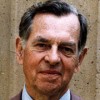It is by going down into the abyss
that we recover the treasures of life.Where you stumble,
there lies your treasure.The very cave you are afraid to enter
turns out to be the source of
what you are looking for.
The damned thing in the cave
that was so dreaded
has become the center.Joseph Campbell (1904-1987) American writer, professor of literature
In Diane K. Osbon, ed., Reflections on the Art of Living: A Joseph Campbell Companion, “In the Field” (1991)
(Source)
Quoted extensively, and mis-cited to a variety of Campbell's published works. I have not been able to confirm a primary source for it.
Quotations about:
destination
Note not all quotations have been tagged, so Search may find additional quotes on this topic.
And why carry out one’s projects, since the project is sufficient pleasure in itself?
[Et à quoi bon exécuter des projets, puisque le projet est en lui-même une jouissance suffisante?]
Charles Baudelaire (1821-1867) French poet, essayist, art critic
Le Spleen de Paris (Petits Poèmes en Prose), No. 24 “Projects [Les Projets],” final words (1869) [tr. Varèse (1970)]
(Source)
(Source (French)). Alternate translations:And what is the good of carrying out a project, when the project itself gives me pleasure enough?
[tr. Hamburger (1946)]And what good is it to carry out plans, since planning itself is a sufficient delight?
[tr. Kaplan (1989)]And what good would it do to execute such plans, since planning is in itself sufficient enjoyment?
[tr. Waldrop (2009)]What good is it to accomplish projects, when the project itself is enjoyment enough?
[Various]
I think we’d like life to be a train. And you get on and pick a destination and get off. And it turns out to be a sailboat. And everyday, you have to see where the wind is and check the currents and see if there’s anybody else on the boat you can help out. But it is a sailboat ride. And the weather changes, and the currents change, and the wind changes. It’s not a train ride. That’s the hardest thing I’ve had to accept in my life. I just thought I had to pick the right train.
Barbara Brown Taylor (b. 1951) American minister, academic, author
Super Soul Sunday, s. 5, ep. 522, “Why Life Is Like a Sailboat Ride,” Oprah Winfrey Network (9 Nov 2014)
(Source)
Starts at 0:48 in the source video. Usually just rendered down as "I think we'd like life to be a train ... but it turns out to be a sailboat."
It is good to have an end to journey towards; but it is the journey that matters, in the end.
Is there anything in life so disenchanting as attainment?
Robert Louis Stevenson (1850-1894) Scottish essayist, novelist, poet
“The Adventure of the Hansom Cabs” (1878)
(Source)
You got to be careful if you don’t know where you’re going, because you might not get there.
The companion before the road, and the road before the destination. But without the destination there is no road, and without the road there is no companion.
Abdal Hakim Murad (b. 1960) British Muslim shaykh, researcher, writer, academic [b. Timothy John Winter]
“Contentions 2,” # 7
(Source)
Caesar, when embarking in a storm, said that it was not necessary he should live, but that it was absolutely necessary he should get to the place to which he was going.
Lord Chesterfield (1694-1773) English statesman, wit [Philip Dormer Stanhope]
Letter to his son, #203 (24 Nov 1749)
(Source)
Many are stubborn in pursuit of the path they have chosen, few in pursuit of the goal.
[Viele sind hartnäckig in Bezug auf den einmal eingeschlagenen Weg, Wenige in Bezug auf das Ziel.]
Friedrich Nietzsche (1844-1900) German philosopher and poet
Human, All Too Human [Menschliches, Allzummenschliches], Part 1, ch. 9 “Man Alone with Himself [Der Mensch mit sich allein],” ¶ 494 (1878)
(Source)
This is a frequent translation of this passage, but I cannot find the original translator.
(Source (German)). Alternate translations:Many are obstinate with regard to the once-chosen path, few with regard to the goal.
[tr. Zimmern (1909)]Many people are obstinate about the path once it is taken, few people about the destination.
(tr. Faber/Lehmann (1984)]Many are obstinate with regard to the path once they have entered upon it, few with regard to the goal.
[tr. Hollingdale (1986)]










